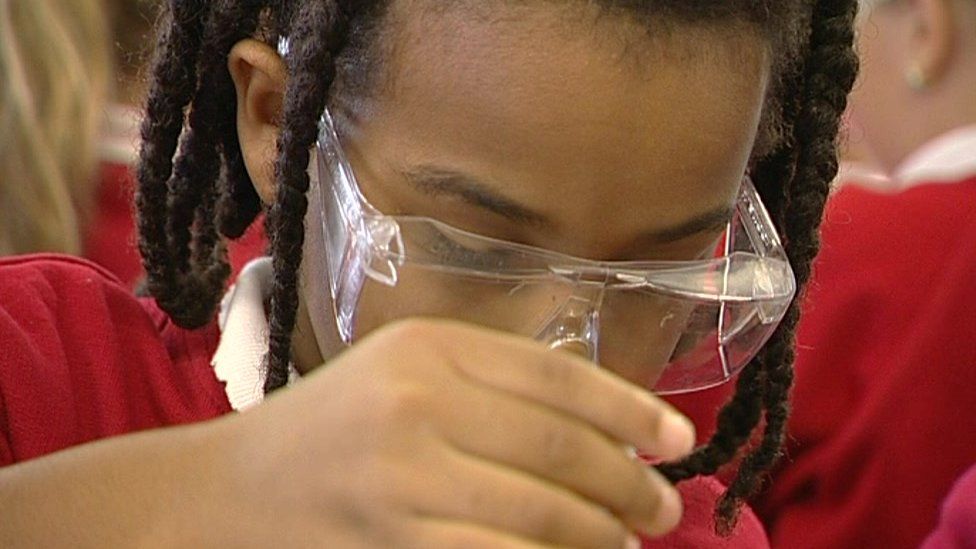Science and languages 'marginalised in primary schools'
- Published

Pupils are leaving primary school unprepared for the rigours of science and foreign languages at secondary level, Ofsted's chief inspector says.
Sir Michael Wilshaw said the focus on the "three Rs" had pushed other compulsory subjects "to the margins of the curriculum" in primary schools.
Science and languages had become the "poor relations" of the primary curriculum as a result, he said.
The government said more pupils were taking science and languages at GCSE.
Sir Michael said, in his monthly commentary, that the government wanted most pupils who started secondary school last September to take the full suite of English Baccalaureate (EBacc) subjects, including science and a foreign language, when they sat their GCSEs, in 2020.
The EBacc is a wrap-around qualification that requires candidates to obtain GCSEs in English, maths, history or geography, a foreign language and two sciences.
'Tight squeeze'
Sir Michael said: "This drive to raise the academic achievement of our young people is a laudable ambition but undoubtedly a very challenging one.
"In 2015, less than half of all pupils studied a foreign language at GCSE and, although science is a core subject that should be studied by all pupils to age 16, only 74% of pupils took it to GCSE level to qualify for the EBacc.
"It seems clear that if the government's ambition is to be met, primary schools will need to lay the foundations in these subjects before their pupils move on to study them at secondary school."
In a recent review of science and language teaching, drawing evidence from 340 routine inspections, inspectors found a lack of time allocated to these subjects.
Pupils spent less than an hour a week studying a foreign language in about two-thirds of primary schools visited, Ofsted said.
Many school leaders and teachers told inspectors the time available for this subject was seriously constrained, with schools "struggling to squeeze" foreign language lessons "into an already tight curriculum".
Teaching time
And while the vast majority of schools spent four hours or more each teaching English and maths, none devoted a similar amount of time to teaching science - the third core subject in the curriculum.
A Department for Education spokesman said: "We are also investing millions to raise the quality of teaching in languages and science through initiatives like the Science Learning Partnership, which benefited more than 2,600 primary schools last year alone.
"We are continuing to recruit high-quality candidates at primary level and have already exceeded our teacher training targets for this year, four months before the recruitment cycle ends.
"Alongside a raft of measures including increased bursaries and other financial incentives in EBacc subjects, including languages, we will ensure teaching remains an attractive profession."
Russell Hobby, general secretary of the National Association of Head Teachers, said: "Primary schools are struggling to prioritise science, languages and arts in the face of an accountability regime which prioritises English and Maths at the expense of all else.
"We agree that these basics are essential, but they are not the be-all and end-all of a primary education."
- Published6 March 2015